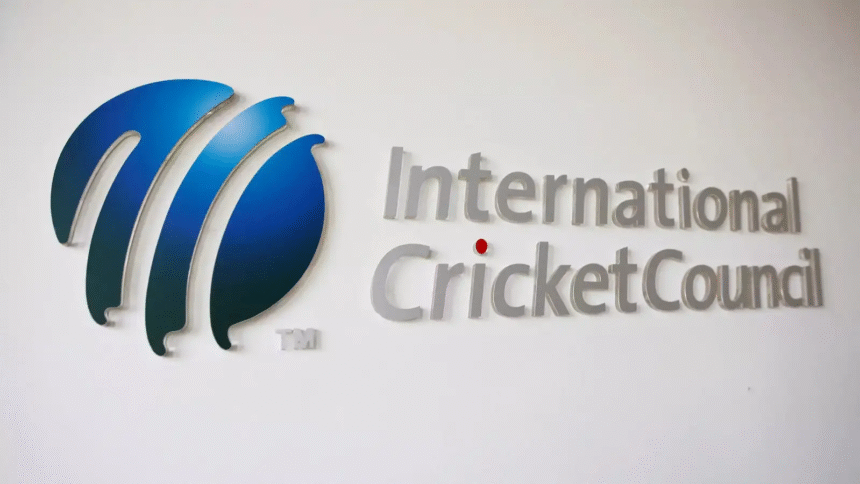New ICC Rules 2024, Cricket’s governing body, the International Cricket Council (ICC), has ushered in a new era of innovation with a series of rule changes set to redefine gameplay in 2024. From Decision Review System (DRS) overhauls to stricter penalty runs and free-hit adjustments, these updates aim to balance fairness, transparency, and entertainment. This article breaks down each change, its implications, and what it means for players, teams, and fans.
1. DRS Overhaul: The End of “Umpire’s Call”?
The controversial “Umpire’s Call” clause in the DRS protocol has been modified to reduce ambiguity. Under the 2024 ICC rules, if more than 50% of the ball is projected to hit the stumps, the decision will favor the bowling team, even if the on-field call was “not out.”
Key Changes:
-
Impact on LBW Reviews: Marginal calls now likelier to result in wickets.
-
Ball-Tracking Transparency: Real-time ball-tracking data will be broadcast during reviews.
-
Player Challenges: Teams retain reviews if “Umpire’s Call” favors them.
Why It Matters:
In the 2023 World Cup semifinal, a disputed “Umpire’s Call” sparked outrage. The new rule aims to minimize such controversies. As former umpire Simon Taufel noted, “This shift prioritizes technology over human error, which is crucial for high-stakes matches.”
🔗 ICC’s Official DRS Guidelines
2. Free-Hit Rule Extended: Batters Get a Second Chance
The free-hit rule now applies to all no-balls, not just foot-faults. Whether a bowler oversteps, delivers a waist-high full toss, or breaks the return crease, batters will get a free hit on the next delivery.
Key Adjustments:
-
Stumping Opportunities: Keepers can still stump batters during free hits.
-
Strategic Bowling: Bowlers may opt for slower balls or yorkers to limit damage.
-
Impact on Scores: Analysts predict a 10-15% rise in T20 scores due to more free hits.
Case Study:
During an India vs. Australia T20, a free hit from a waist-high no-ball allowed Glenn Maxwell to smash a match-winning six. Such moments will become more frequent, rewarding aggressive batting.
3. Penalty Runs: Stricter Enforcement for Time Wasting
To combat slow over rates, the ICC has introduced harsher penalties:
-
5 Runs Penalty: For every over not completed in time (up from 3 runs).
-
Captain Suspensions: Two offenses within a year lead to a one-match ban.
-
In-Match Fines: Players lose 20% of match fees for each delayed over.
Impact on Teams:
-
Tactical Changes: Captains may use part-time bowlers to speed up play.
-
Fan Engagement: Reduced downtime improves viewer experience.
Recent Example:
In a Test match against England, South Africa lost 15 penalty runs after failing to bowl 12 overs in a session, altering the game’s outcome.
🔗 Penalty Run Analysis on ESPNcricinfo
4. Substitute Players: Expanding the “Impact Player” Rule
First trialed in the IPL, the “Impact Player” rule is now ICC-approved for T20Is. Teams can substitute one player mid-innings, akin to football’s tactical substitutions.
How It Works:
-
Strategic Flexibility: A specialist bowler can replace an underperforming batter.
-
Injury Mitigation: Teams avoid playing short-handed if a player gets injured.
Controversy:
Critics argue it dilutes the importance of all-rounders, but fans praise the added drama.
5. Stop-Clock Rule: Speeding Up the Game
New ICC Rules 2024, A 60-second timer between overs is now mandatory in ODIs and T20Is. Failure to start the next over in time results in:
-
First Offense: Warning.
-
Subsequent Offenses: 5 penalty runs per delay.
Result:
-
Shorter Matches: ODIs now finish 20-30 minutes faster.
-
Bowlers’ Endurance: Fitness levels are scrutinize as pressure mounts to maintain pace.
Reactions from the Cricket World
-
Players: Mixed responses. Virat Kohli called the DRS changes “a win for fairness,” while Pat Cummins criticized penalty runs as “too harsh.”
-
Coaches: Ricky Ponting supports the Impact Player rule, stating it “rewards tactical genius.”
-
Fans: Social media polls show 68% approval for free-hit extensions.
Read More: Meet the Next Meg Lanning – Young Star Dominating Women’s Cricket in 2024
Future Implications: A Template for 2027?
These rules are a trial run for the 2027 World Cup. If successful, the ICC may:
-
Introduce powerplay restrictions for spinners.
-
Mandate smart helmets with collision sensors.
-
Implement AI-powered umpiring for no-balls.
🔗 Expert Predictions on CrickViews
Conclusion: Cricket Enters a New Era
New ICC Rules 2024, The ICC rule changes reflect cricket’s evolution from tradition-bound to innovation-driven. While purists may resist, these updates promise fairer outcomes, faster gameplay, and heightened excitement. As the sport globalizes, such reforms are crucial to engaging new audiences and retaining its core fanbase.
Stay updated on cricket’s evolving landscape at CrickViews, your premier source for in-depth analysis.






